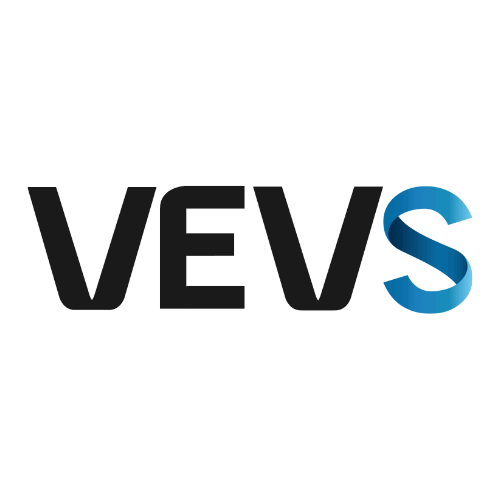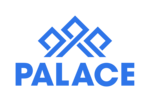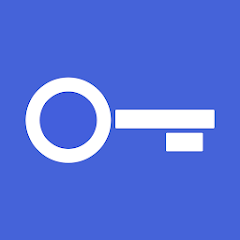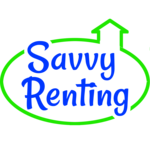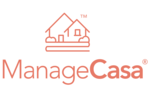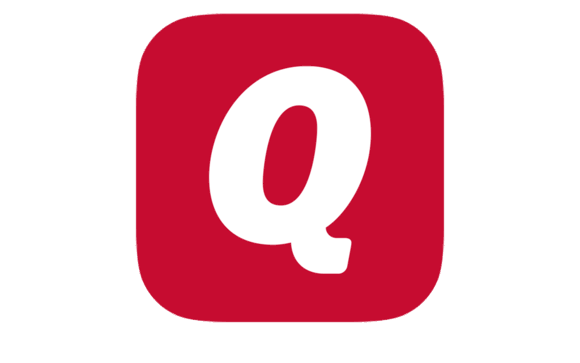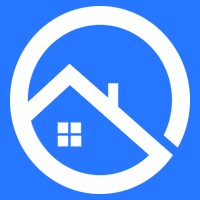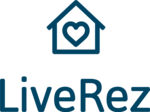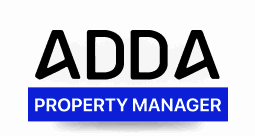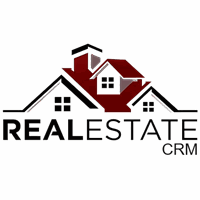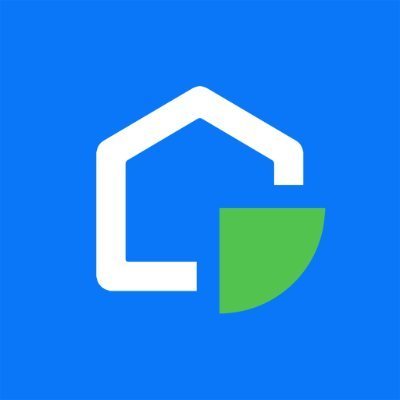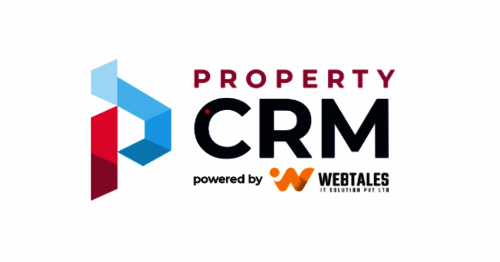Yes, most rental property management software can be used from a variety of devices and platforms. You may effortlessly manage your homes and tenants from a desktop, laptop, tablet, or smartphone. Many software firms also provide mobile app versions for Android and iOS devices, making it even easier for landlords and property managers to stay informed and connected while on the road.
List of 20 Best Rental Property Management Software
Rentec Direct is a highly acclaimed cloud-based property management software that offers unparalleled accessibility and support for landlords and managers of all portfolio sizes. With a proven track record among thousands of satisfied users, this sol...Read More Rentec Direct
TurnoverBnB is an innovative tool that simplifies the cleaning process for vacation rental hosts. With automatic scheduling and payment features, it creates an efficient turnover process for hosts worldwide. Acting as a central hub for communication...Read More TurnoverBnB
JumboTiger is a saas-based property management and coliving solution. Simplify your work by ditching multiple apps and streamlining all tasks with one convenient platform. From onboarding tenants and owners to seamless collaboration, JumboTigers high...Read More JumboTiger
Tellus - the innovative app designed for individuals seeking to build wealth through residential property investments. From property management tools to a cash wallet, Tellus empowers users to actively invest in real estate for long-term financial gr...Read More Tellus
VEVS Rental Property solution for creating a professional online platform for your rental properties. Our user-friendly website builder gets your site up and running in just 24 hours. Our versatile software streamlines your business processes, making...Read More VEVS Rental Property
Palace is a all-in-one Rental Software designed specifically for small and medium-sized businesses and agencies. This powerful system is fully compatible with Windows and offers a wealth of features such as Contact Management, Tenant Portal, Vacancy...Read More Palace
Experience the power of Rentroom – your all-in-one rental property management software. Revolutionize your business with our comprehensive solution that takes care of rent collection, maintenance, accounting, communication, and leasing. With a...Read More Rentroom
iRent is a property management software for landlords and property managers. Streamline your rental operations with automated rent collection, efficient maintenance tracking, and seamless tenant communication. Eliminate administrative headaches and e...Read More iRent
SavvyRenting - an integrated property management solution that streamlines your daily tasks. From automated rent collection to maintenance tracking and tenant communication, this software saves time and reduces stress. With improved tenant satisfacti...Read More SavvyRenting
ManageCasa is a property management software for HOA and rental property managers. Our platform streamlines tasks like maintenance and accounting, saving you time and increasing tenant satisfaction. With user-friendly features and powerful integratio...Read More ManageCasa
Rentler Landlord Software solution for hassle-free property management. With our user-friendly platform, you can effortlessly list your properties, screen potential tenants, and manage payments. Say goodbye to complicated rental processes and hello t...Read More Rentler Landlord Software
ResMan is a property management solution that transforms the management of multifamily and affordable housing communities. Its advanced capabilities simplify marketing, compliance, and performance tracking, making it the top choice for industry leade...Read More ResMan
Hemlane is a rental management software that simplifies the entire rental process. It allows landlords to easily find and manage tenants, with features like listing on multiple websites, lead tracking, automated late fees, document storage, maintenan...Read More Hemlane
Quicken - the leading budgeting tool for efficient financial management. Access over 11,000 online billers and easily download PDF bills for convenient bill payments. Enjoy advanced features without the need for upgrades, along with enhanced customiz...Read More Quicken
Innago, the premier rental property management software for landlords and property managers of small-to-mid-sized properties. With a free trial that doesnt require a credit card, Innago simplifies and streamlines your rental management processes. Exp...Read More Innago
LiveRez is a all-in-one solution for managing vacation rentals. With powerful integrations and a supportive community, it helps property managers maximize revenue and streamline operations. Its comprehensive features include CRM, trust accounting, an...Read More LiveRez
ADDA Property Manager is an advanced software solution crafted exclusively for Property Managers and Management Companies. It offers streamlined features for efficient management of properties, accounting, communication, tenant management, and portfo...Read More ADDA Property Manager
the Real Estate CRM by Tech Celerity - a software specifically crafted to take your real estate business to greater levels. Our customizable and efficient CRM is equipped with modern features and automated processes, providing you with the agility an...Read More Real Estate CRM by Tech Celerity
DealCheck is your essential partner for real estate investments. With just a few seconds, this software allows you to analyze any property and discover the most profitable deals. Its user-friendly platform can be accessed from your computer, phone, o...Read More DealCheck
PropertyCRM by Webtales - the leading CRM software built specifically for Real Estate professionals. Featuring a SEO-optimized website, it provides a comprehensive solution for managing property listings, sales tracking, and invoicing. Simplify and e...Read More PropertyCRM by Webtales
Learn More About Rental Property Management Software
- What Is Rental Property Management Software?
- What Are The Recent Trends In Rental Property Management Software?
- Benefits Of Using Rental Property Management Software
- Important Factors To Consider While Purchasing Rental Property Management Software?
- What Are The Key Features To Look For In Rental Property Management Software?
- Why Do Businesses Need Rental Property Management Software?
- How Much Time Is Required To Implement Rental Property Management Software?
- What Is The Level Of Customization Available In Rental Property Management Software?
- Which Industries Can Benefit The Most From Rental Property Management Software?
- Conclusion
What Is Rental Property Management Software?
Rental Property Management Software is a sophisticated solution that automates and simplifies the process of managing rental properties. This software automates a variety of chores and includes comprehensive capabilities to help you manage properties including apartments, single-family houses, and commercial spaces. Rental Property Management Software allows property owners and managers to conveniently track tenant information, lease agreements, rent payments, and maintenance requests from a single centralized platform.
This not only saves time and effort, but also enhances property management organization and efficiency. One of the most significant advantages of adopting Rental Property Management Software is the ability to conveniently manage financial aspects such as rent collecting, invoicing, and spending. The program can provide reports and analytics that provide significant insights into a property's financial performance.
This enables property owners to make informed decisions and prepare for the future. Additionally, Rental Property Management Software provides handy communication features for owners and tenants. Tenants can quickly submit maintenance requests or make rent payments using the program, while landlords can send vital information and changes to their tenants. This promotes open communication and a pleasant landlord-tenant relationship.
Another key aspect of Rental Property Management Software is the ability to manage vacancies and tenant applications. The software includes capabilities for marketing properties, posting listings, and managing applications, making the process of locating and approving tenants considerably easier. When shopping for Rental Property Management Software, customers should examine the software's scalability and versatility. They should also consider the product's usability, customer support, and integration possibilities with other tools and applications they already use.
What Are The Recent Trends In Rental Property Management Software?
Rental property management software has grown and evolved significantly in recent years, owing to technical improvements and changing consumer demands. To make an informed decision, a buyer must be aware of the most recent trends in this area.
Let's look at the latest trends in rental property management software and how they can help you.
1. Automation And Artificial Intelligence (AI): One of the most important advancements in rental property management software is the incorporation of automation and AI. Property managers may use AI to automate operations like rent collecting, maintenance requests, and lease renewals, which saves time and increases efficiency. Automation also lowers human error and promotes uniformity in operations, resulting in higher tenant satisfaction.
2. Mobile Accessibility: With the rise of smartphones and tablets, rental property management software firms have begun to offer mobile versions of their solutions. This trend enables property managers to access and manage their properties while on the go, increase tenant communication, and respond quickly to critical needs. It also enables remote property management, allowing property owners to oversee their investments from anywhere in the world.
3. Cloud Based Solutions: Cloud-based rental property management software has gained popularity in recent years. These systems enable users to view data and manage properties from any device with an internet connection. As a buyer, you may avoid the headache of managing physical servers and benefit from automatic updates and backups, which ensure the security and stability of your data.
4. Integration With Other Platforms: To create a more smooth experience for property managers, several rental property management software vendors are now integrating with additional platforms such as accounting software, tenant screening tools, and maintenance services. This interface streamlines the property management process, eliminates human data entry, and lowers the likelihood of errors.
5. Focus on Tenant Experience: As customer experience becomes a more important difference in the rental property market, software suppliers are focusing on improving the renter experience. This trend has resulted in the creation of features like as online rent payments, tenant portals for communication and maintenance requests, and self-service alternatives, which improve tenant satisfaction and retention rates.
These are some of the most important trends in rental property management software, which are influencing the market and helping property owners and managers. As you examine alternative software solutions, keep these trends in mind and select the solution that best meets your needs and matches with your business objectives.
Benefits Of Using Rental Property Management Software
Rental property management may be a difficult and time-consuming undertaking, particularly for landlords and property managers who have many properties. Fortunately, technological improvements have resulted in the introduction of rental property management software, which streamlines and simplifies the entire process.
Here are some advantages of using rental property management software, which make it an indispensable tool for every landlord or property manager:
1. Organization And Efficiency: One of the most significant benefits of adopting rental property management software is the increased organization and efficiency it delivers. With features like online rent payments, automatic invoice production, and tenant communication tools, tasks that used to take hours may now be performed in minutes. This not only saves time, but also decreases the possibility of human error, resulting in greater overall efficiency.
2. Cost Savings: While investing in rental property management software may appear to be an unnecessary cost, it can ultimately save landlords and property managers money. By automating operations and minimizing the need for manual labor, software can drastically reduce operating expenses. Furthermore, it can assist avoid costly blunders like missed rent payments or delayed maintenance, which can lead to financial losses.
3. Improved Communication: Effective communication is essential in the rental property industry, both with tenants and property owners. Rental property management software can make this easier by offering a centralized platform for all communication. Tenants may make maintenance requests, pay rent, and receive vital updates, while landlords can monitor reports and connect with tenants in real time, resulting in a stronger tenant-landlord relationship.
4. Upkeep Management: Property upkeep is an important component of rental property management, and manually tracking maintenance concerns can be tiresome and difficult. Landlords can use software to effectively track and handle maintenance requests, schedule repairs, and communicate updates to tenants. This ensures that any maintenance issues are resolved quickly, resulting in enhanced tenant satisfaction and retention.
5. Real-Time Reporting: One of the most important aspects of rental property management software is the ability to generate real-time data. These reports provide landlords and property managers with useful information about the performance of their properties. They include data on rent collection, occupancy rates, and financial records, which allows for better decision-making and ensures the properties' profitability.
Important Factors To Consider While Purchasing Rental Property Management Software?
When it comes to managing rental properties, the right software may make a huge impact. With so many options available on the market, it might be difficult to select the ideal one for your personal requirements.
To help you make an informed selection, here are some crucial elements to consider when selecting rental property management software.
1. Features And Functionality: The first step in selecting the proper software is to examine your company's requirements. Make a list of the key functions you need, such as tenant and lease administration, financial reporting, and maintenance tracking. Look for software that provides a complete collection of capabilities that are relevant to your business needs.
2. Usability: As a property manager, your time is valuable. You do not want to spend hours learning and navigating sophisticated software. Look for software with a simple interface that helps you to easily manage your properties, tenants, and money.
3. Integrations: Determine whether the program is compatible with other tools you use, like as accounting software, online payment platforms, or marketing tools. A properly integrated system may make your workflow more efficient and save you time and effort.
4. Customer Support: Technical problems can occur at any time, and you need dependable assistance to handle them fast. Look for software vendors who provide prompt and responsive customer assistance via phone, email, or live chat.
5. Scalability And Flexibility: Because your organization may expand and alter in the future, it's critical to select software that can adapt to your changing requirements. Make sure the software is scalable, agile, and adaptable to your changing business needs.
6. Security And Data Protection: Because your property management software may hold sensitive information, it is critical to ensure that it has strong security mechanisms in place. Look for software that includes data encryption, scheduled backups, and safe data storage.
7. Pricing: While price should not be the only deciding factor, it is critical to consider your budget when selecting rental property management software. Look for software with transparent pricing, no hidden costs, and good value for money.
When selecting rental property management software, consider these aspects to make an informed decision. Remember to investigate and compare several possibilities before making a final decision to find the ideal fit for your company's requirements.
What Are The Key Features To Look For In Rental Property Management Software?
As a property owner or investor, managing many rental properties can be time-consuming and difficult. This is where rental property management software comes in: it streamlines and automates many elements of property administration, freeing up your time to focus on other vital activities. But with so many options on the market, it can be difficult to select the best software for your needs.
To help you make an informed decision, these are the important features to look for in rental property management software.
1. Online Payment Processing: One of the most important aspects of rental property management software is the ability to accept online rent payments. This not only simplifies the rent collection process for tenants, but also removes the possibility of late or missed payments. Look for software that accepts several payment methods, including credit/debit cards, bank transfers, and e-checks.
2. Tenant And Lease Management: The program should enable you to store and retrieve tenant information, such as contact information, lease agreements, and payment history. It should also be able to monitor lease terms, give automated rent rise notifications, and manage lease renewals.
3. Maintenance And Repair Management: A decent rental property management software should have a ticketing system for handling maintenance and repair requests from tenants. This tool assists in tracking the status of requests, assigning work to suppliers, and keeping track of all maintenance expenses for each property.
4. Accounting And Financial Management: Look for software that includes accounting functionality or can be smoothly integrated with existing accounting software. This will allow you to track income and expenses for each property, generate financial reports, and simplify the tax preparation process.
5. Automatic Rent And Expense Tracking: This function allows you to conveniently manage your rental revenue and expenses, including recurring payments like mortgage, insurance, and utilities. This will provide you a comprehensive picture of your financial situation, allowing you to make smarter business decisions.
6. Document Management: Storing and arranging property-related documentation can be time-consuming. A decent property management software should include a document management feature that lets you easily store, access, and share crucial files and papers.
7. Mobile Accessibility: In today's fast-paced environment, accessing information on the go is critical. Look for software with a mobile app or a mobile-optimized website that allows you to manage your properties and complete necessary duties from your phone or tablet.
8. Scalability: As your company grows, you may need to handle additional properties. Choose rental property management software that can scale with your business and handle a large number of units without sacrificing performance.
When choosing rental property management software, it is critical to examine elements such as pricing, customer service, and usability. Evaluate your demands and select the software that best meets your budget and requirements. With the correct rental property management software, you can save time, reduce errors, and boost your overall property management effectiveness.
Why Do Businesses Need Rental Property Management Software?
Businesses use rental property management software for a number of reasons. This software includes a variety of tools and features designed primarily to streamline and automate the processes involved in managing rental properties, making property managers' jobs easier and more efficient.
Here are some of the primary reasons why firms should invest in rental property management software.
1. Simplify Tenant Management: Rental property management software enables businesses to conveniently handle their tenants' information, such as lease agreements, rent payments, and maintenance requests. This eliminates the need for human record-keeping, lowering the risk of errors or missed payments.
2. Automate Rent Collection: The software enables businesses to set up automatic rent collection, which saves time and effort in following down payments. This also ensures consistent and timely payments, resulting in improved cash flow management.
3. Efficient Care Management: The program allows firms to track and schedule property care chores, set reminders, and keep records of maintenance history. This allows for faster repairs and minimizes the likelihood of equipment malfunctions, resulting in happy renters and better property maintenance.
4. Streamline Accounting: Rental property management software includes built-in accounting capabilities that automate chores like financial report generation, spending tracking, and tax calculations. This helps organizations keep accurate financial records and decreases the likelihood of costly accounting errors.
5. Improved Communication: The program offers renters a consolidated platform for communicating with their property managers. This improves communication and openness by allowing tenants to make maintenance requests and receive status updates directly through the program.
6. Comprehensive Data Analysis: Rental property management software has robust reporting and data analysis features that help businesses understand their property performance, vacancies, and tenant payments. This enables organizations to make more informed decisions and uncover opportunities for improvement.
How Much Time Is Required To Implement Rental Property Management Software?
The time required to establish rental property management software varies depending on a number of factors. The implementation procedure can last anything from a few days to a few weeks. However, if your firm has additional complexities or requires modification, this timeline can be prolonged. The size of your property portfolio, the level of data conversion required, and the complexity of your present processes are all important considerations when estimating implementation time.
In some circumstances, if you have a modest property portfolio with straightforward operations, you may be able to begin using the program within a few days. However, if you have a larger property portfolio, complex processes, and a huge amount of data to move, the implementation time may be longer. This is because the software must be adjusted to your individual business requirements, and data migration can be time-consuming.
It's vital to note that the time required for deployment is also determined by the rental property management software's functionality and features. Some software may have a straightforward and user-friendly interface, making it easier to set up and begin using. In comparison, a more comprehensive software solution may necessitate additional time for training and onboarding. Overall, implementing rental property management software might take anything from a few days to several weeks.
It is critical to carefully examine your business requirements and select a software solution that can meet them successfully and efficiently. You may guarantee that your rental property management software setup goes smoothly by planning ahead of time and communicating with your software vendor.
What Is The Level Of Customization Available In Rental Property Management Software?
When selecting rental property management software, one critical element to consider is the level of flexibility available. This refers to the capacity to adapt and tailor the software to your rental business's specific requirements. So, what level of customisation can you expect from rental property management software? Let's have a closer look. To begin, keep in mind that the extent of customization varies from program to software.
Some may have extensive customizing choices, but others may be relatively limited. To identify the finest alternative for your needs, you must conduct thorough research and comparisons. In general, rental property management software should allow you to personalize rent collection techniques, lease terms and clauses, late fees and grace periods, and property or unit descriptions.
Some complex software may also enable you to tailor procedures and automate tasks like maintenance requests, rental applications, and financial reporting. Customization levels are also determined by the software's pricing plan. Some may provide additional personalization possibilities in their more expensive plans, but others may limit specific features to their premium plans.
Keep this in mind while you make your decision. It's also worth mentioning that some software may allow you to add third-party programs or tools to further personalize your experience. This can be handy if you have specific requirements that are not addressed by the software.
Which Industries Can Benefit The Most From Rental Property Management Software?
Rental property management software is a useful tool for streamlining and automating several areas of the property management process. While it may appear that this software is solely useful for landlords and property managers, it has the potential to benefit a wide range of sectors.
1. Real Estate Companies: Real estate companies can considerably benefit from rental property management software since it allows them to properly manage their rental properties and listings. This software can help with activities like rent collection, screenings, and maintenance requests, freeing up agency staff to focus on other vital things.
2. Property Management Companies: Unsurprisingly, rental property management software is essential for property management firms. This program may dramatically boost productivity and save time by allowing you to manage several properties and renters from a single platform, as well as features like automated rent reminders and online payments.
3. Vacation Rental Companies: As the vacation rental sector grows, there is a greater demand for effective property management. Rental property management software may assist vacation rental companies handle bookings, reservations, and payments, making it a useful tool for managing several properties and guests at the same time.
4. Student Housing Providers: Rental property management software can make a significant difference for organizations that specialize in student housing. This program, which allows you to effortlessly handle leases, room allocations, and tenant contact, may substantially simplify the complex process of managing student housing facilities.
5. Condo And HOA Management: Condominiums and homeowners' associations (HOAs) present particular issues, but rental property management software can help reduce some of the pressure. This program can help you collect dues, manage maintenance requests, and keep track of critical paperwork and agreements.
6. Commercial Homes: While rental property management software is generally linked with residential homes, it can also be useful for commercial properties. This software can assist landlords and property managers in effectively managing leases, tracking payments and expenses, and maintaining communication with renters, so increasing total profitability.
Conclusion
In conclusion, selecting the appropriate rental property management software is critical for streamlining and optimizing your property management procedures. With so many options available in the market, it might be difficult to choose the ideal one for your individual requirements. However, you may make an informed decision by taking into account key variables such as pricing, features, customer service, and usability.
When deciding on pricing, it is critical to evaluate the software's long-term ROI in addition to the upfront cost. Look for features like automated tasks, tenant screening, and financial reporting to help you save time and money in the long run. The software's features are also an important consideration. Look for features that can help you manage your properties more successfully and are relevant to your business.
Additionally, ensure that the software is user-friendly and can be easily integrated with your current processes. Customer service is also important to examine because you want to guarantee that any difficulties or questions you may have are promptly answered by the software vendor. Look for software that provides solid customer assistance via phone, email, or live chat.
Finally, by carefully examining pricing, features, usability, and customer service, you may choose the ideal rental property management software to help you manage your properties more efficiently and improve your overall business operations. We hope this buyer's guide has helped you make an informed selection. Good luck in your hunt for the ideal rental property management software!
Rental Property Management Software FAQ's
Can Rental Property Management Software Be Accessed Across Multiple Devices And Platforms?
Is Rental Property Management Software Future-Proof And Adaptable To Emerging Technologies Like AI, Blockchain Or IoT?
Yes, rental property management software is meant to be future-proof and adaptable to upcoming technologies like as artificial intelligence, blockchain, and the Internet of Things. These technologies can improve the efficiency and accuracy of property management duties, ranging from automated rent collecting to predictive maintenance.
With the ability to collect and analyze vast volumes of data, rental property management software is well-suited to integrating these technologies and staying ahead of industry trends. This streamlines and modernizes property management processes, giving landlords and property managers a competitive advantage.
Is There A Free Trial Offered To Assess Rental Property Management Software Before Committing?
Yes, many rental property management software providers provide a free trial period for potential customers to evaluate the software before making a purchase. This enables users to try the features and functionality to see if they meet their individual requirements and preferences. Free trials often last 14 to 30 days, allowing customers to fully explore the software's capabilities. Take advantage of the free trial period to confirm that the program meets your rental management requirements.
Does Rental Property Management Software Offer Data Security Features And Meet Regulatory Compliance Standards?
Rental property management software includes powerful data security safeguards to protect sensitive information. It protects against cyber dangers by using data encryption, secure servers, and regular data backups. Furthermore, trustworthy software vendors adhere to regulatory standards like as HIPAA, GDPR, and CCPA to ensure the privacy and security of user information. This not only protects your company but also fosters trust with your customers.
Can Rental Property Management Software Integrate Seamlessly With Existing Tools And Platforms?
Many rental property management software solutions are built to work easily with other common tools and platforms, such as accounting software, payment systems, and document management systems. This enables for more efficient processes and eliminates the need for human data entry.
Before selecting a software, ensure that it is compatible with your existing tools and platforms to enable a smooth integration. With the right integration, you can save time, decrease errors, and manage your rental properties more efficiently.





